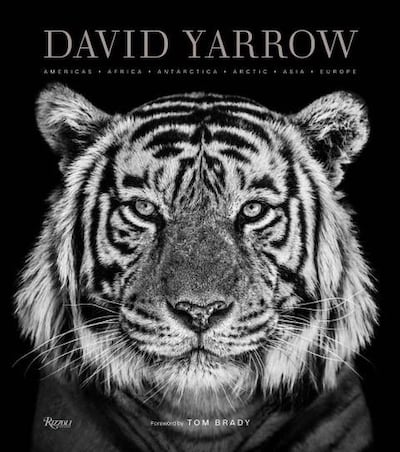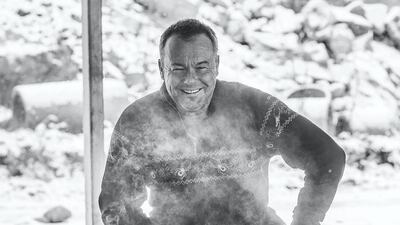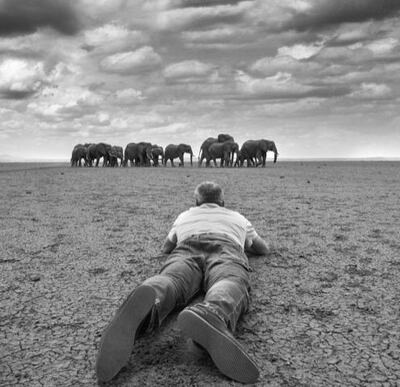Born in Glasgow, David Yarrow is one of the bestselling fine-art photographers in the world. He took up photography at an early age and at 20, found himself covering the World Cup Final in Mexico City. He was responsible for taking the now-famous picture of Diego Maradona holding the World Cup.
Years later, he shifted his focus to documenting the natural world and his limited-edition prints now regularly sell for more than Dh257,000 a piece. He has just released his first photographic monograph in three years, featuring many of his most famous works, with a foreword written by NFL star Tom Brady and an afterword by Cindy Crawford. We caught up with the intrepid photographer.
Why did you decide to focus on documenting the natural world?
To heighten awareness of the threat to biodiversity on our planet. I also felt that perhaps some of the imagery of the natural world wasn’t quite as immersive or as emotional as it could be. And like many other people, I am interested in the natural world and viewed it as an opportunity to see more of it.
You have travelled far and wide, but is there a place that is particularly special to you?
Montana, because of the uniqueness of the scenery, matched with the uniqueness of the people. There, you have the potential for a double-layered narrative. I’ve been going to Montana for the past four years and I still feel there are endless possibilities there. The other place is Amboseli [in Kenya]; this has been a bedrock of my career. Almost all of my elephant shots were taken here; it is a clean canvas on which to tell stories.
What’s the best thing about travelling? Can you tell us about a travel experience you have had that was particularly transformative?
Travel broadens the mind, it gives you contextuality. We live in a world now where we should try, if possible, to see things ourselves rather than be told things by other people. There is no experience better than witnessing something with your own eyes. Going to photograph North Korea was eye-opening. My only view of the place was through the news, so I had no idea what to really expect. When I got there, the people were kind and welcoming.
Having chronicled the natural world so closely, what are the most disturbing changes you have witnessed?
The fact that just about everywhere is accessible now. The impact of mass tourism means that wherever you go, there will always be people. This is especially true of more remote areas where perhaps people didn’t venture as much. This is down to the extraordinary growth of the economies in places such as China, India, Brazil and America, which has led to population growth and human encroachment on what was once open space. It is very difficult to regulate population growth. Encroachment is not a sexy headline like poaching, but it is the biggest threat in Africa.
Is there one image that you would say defined or changed the course of your career?
Mankind was the moment that changed my career. I had been courting a gallery-owner named Holden Luntz, who I felt held the keys to the American market – he is a scholar of photography. Before I took Mankind, he did not want to speak to me. When I rolled it out in front of him in print for the first time, he told me it would change my life. I closed down my business in the following weeks to pursue fine-art photography full time.
What three things do you always travel with?
A notepad, insect repellent and a sense of humour.

What’s the one piece of advise you would offer aspiring photographers looking to capture the natural world?
Be your own biggest critic and try to be original, but learn from the photos of others. It sounds counter intuitive, but you must often absorb everything that has gone before to create something new – we stand on the shoulders of giants that went before us.



